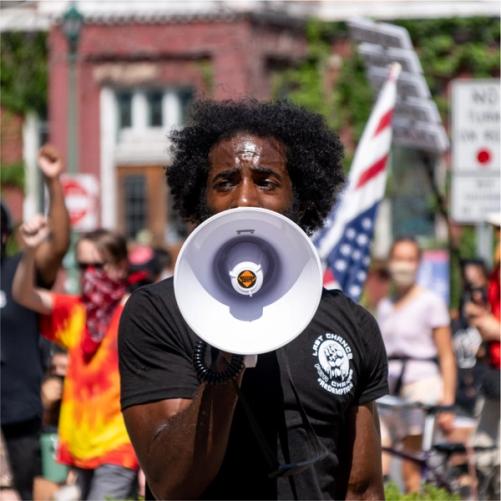Stories from our work
Stories from our work
From the kitchen counter to the mayor's office
It's not many years ago Luciana only left her house when she had to go to town to buy sugar and rice. Today, she is the mayor of the small village of Laya in the highlands of Bolivia. She has become a role model for girls who previously believed they had no place at the table where decisions were made.
I never thought I would come to a position where I could influence other people's lives in this way,

Bolivia is the South American country with the highest percentage of indigenous people, around 80 percent. Luciana is Aymara, which is the largest indigenous group. Girls from most indigenous groups in Bolivia often drop out of school early.
My dad had little faith in us six girls. He bet everything on my brothers. He believed sending us girls to high school was a waste, and the likelihood of us ending up pregnant was too high.
It turned out that Luciana's father was wrong about her.
I wanted to study even though we couldn't afford it. I decided to move to the city where my grandmother lives. There, I had to work under my mom's name since I was only twelve.
The city Luciana speaks of is located on the plateau above the capital La Paz. Luciana was not alone in moving to El Alto. Since the 90s, the city has tripled its population and is now the country's second-largest city, actually larger than La Paz.
Those who live here move from rural areas to find work and better living conditions. Here, there are indigenous people from all over the country, especially many Aymara. The first years on the cold, oxygen-deprived plateau was challenging, but Luciana managed:
I completed high school as the only one among us six sisters.

Prohibition Era
Nevertheless, it didn't turn out exactly as she wished.
When I was 21, I got married, and then the prohibition era began again. I wasn't allowed to do this or that. I had three children, and there wasn't much time for anything else. We were poor, and I had to do everything I could to make ends meet.
Much time was spent in the kitchen, and on the kitchen counter, there was a radio she often listened to.
On the radio, I heard about the opportunity to study on Saturdays and Sundays, the only days of the week I had the opportunity, so I jumped at it. Today, I am eternally grateful for that.
The education she heard about on the radio was tailored to the situation of women like Luciana. Just a few years earlier, other Aymara women in similar life situations had come together. They started an organization that would eventually become groundbreaking in its work to ensure that indigenous women would receive education and subsequently have influence. El Centro de Desarrollo Integral de la Mujer Aymara (CDIMA) or the Development Center for Aymara Women, still runs education programs for women and youth of indigenous communities in Bolivia, over 30 years later.
There are thousands of women who, without this, would not have had the opportunity to support themselves. Through CDIMA, they have gained knowledge about their own and others' rights, as well as the belief that women can lead and make decisions for themselves and others. They pass on this belief to their children, family members, and the community in general.
The organization reports that the women who participate in the courses encourages women in their local communities to register themselves and their children. Without a birth certificate, you don't exist in the eyes of the state, which in turn means you have no rights. Without a social security numberer, you don't get a place in school, healthcare, or an invitation to vote in elections. Some of the women also take the extra step and stand for election themselves.
A Seat at the Table
CDIMA opened my eyes. It changed my life, actually. In the over 300 municipalities in Bolivia, there are 22 women who are mayors. But there are still many, both men and women, who struggle with having a woman making decisions that affect them.
SAIH supports CDIMA's work to ensure that indigenous women, including individuals like Luciana, secure their rightful place at the decision-making table regarding their lives, local communities, and the future of the country.
More stories from our work


Stories from our work

